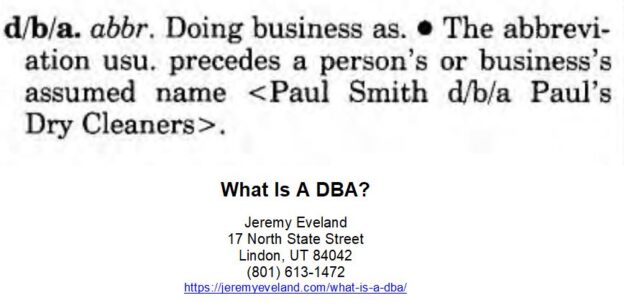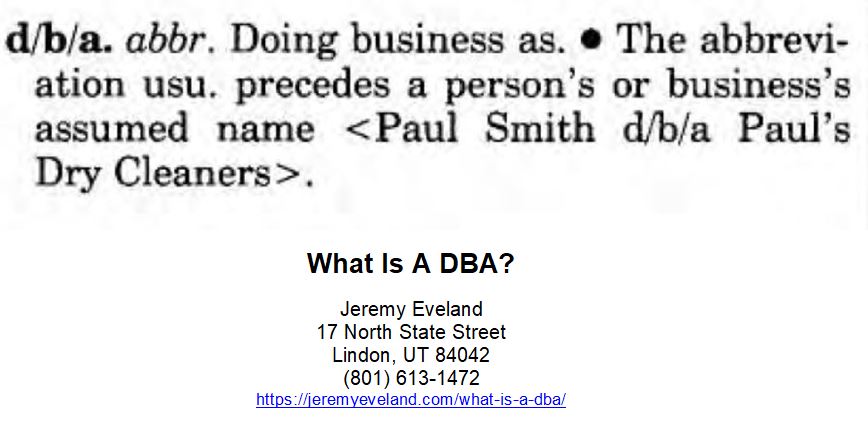-
Attorney and Counselor at Law
- Introduction
- What Are the Benefits of an Operating Agreement for an LLC?
- What Are the Legal Issues Involved in Operating an LLC?
- What Are the Tax Implications of an LLC?
- What Are the Different Types of LLCs?
- What Are the Requirements for Forming an LLC?
- What Are the Benefits of Hiring an LLC Lawyer?
- What is an LLC Lawyer and What Services Do They Provide?
- What Are the Risks of Not Having an LLC Lawyer?
“LLC Lawyer: Your Partner in Business Success”
Introduction
LLC Lawyer is a legal service provider that specializes in helping businesses form and maintain limited liability companies (LLCs). We provide comprehensive legal advice and services to help entrepreneurs and business owners understand the complexities of LLC law and ensure their businesses are compliant with all applicable laws and regulations. Our team of experienced attorneys and legal professionals are dedicated to providing the highest quality of legal services to our clients. We strive to provide our clients with the best possible legal advice and representation to ensure their businesses are successful and compliant with all applicable laws.
What Are the Benefits of an Operating Agreement for an LLC?
An operating agreement for a limited liability company (LLC) is a legal document that outlines the ownership and operational structure of the business. It is an important document that helps protect the interests of all members of the LLC and ensures that the business is run in accordance with the laws of the state in which it is registered. The benefits of having an operating agreement for an LLC include:
1. Establishes the LLC’s Ownership Structure: An operating agreement outlines the ownership structure of the LLC, including the percentage of ownership each member holds and the rights and responsibilities of each member. This helps to ensure that all members are aware of their rights and obligations and that the LLC is structured in a way that is beneficial to all members.
2. Clarifies the Management Structure: An operating agreement also outlines the management structure of the LLC, including who has the authority to make decisions and how decisions are made. This helps to ensure that the LLC is managed in a way that is consistent with the wishes of all members.
3. Establishes Rules for Dissolution: An operating agreement also outlines the rules for dissolving the LLC, including how assets will be distributed and how debts will be paid. This helps to ensure that the LLC is dissolved in an orderly manner and that all members are treated fairly.
4. Protects Members from Personal Liability: An operating agreement also helps to protect members from personal liability for the debts and obligations of the LLC. This helps to ensure that members are not held personally liable for the debts and obligations of the LLC.
Overall, an operating agreement for an LLC is an important document that helps to protect the interests of all members and ensure that the LLC is run in accordance with the laws of the state in which it is registered.
What Are the Legal Issues Involved in Operating an LLC?
Operating an LLC (Limited Liability Company) involves a number of legal issues that must be addressed in order to ensure compliance with applicable laws and regulations. These issues include the formation of the LLC, the selection of a business structure, the filing of necessary documents, the selection of a registered agent, the selection of a business name, the payment of taxes, and the protection of intellectual property.
Formation of the LLC: The first step in forming an LLC is to file the necessary documents with the state in which the business will be operating. This includes the Articles of Organization, which outlines the purpose of the LLC, the names of the members, and the management structure. Depending on the state, additional documents may be required.
Selection of a Business Structure: The LLC must select a business structure that best suits its needs. This includes selecting a single-member LLC, a multi-member LLC, or a limited liability partnership. Each structure has its own advantages and disadvantages, and the LLC must select the structure that best meets its needs.
Filing of Necessary Documents: Once the LLC has selected a business structure, it must file the necessary documents with the state. This includes the Articles of Organization, the Operating Agreement, and any other documents required by the state.
Selection of a Registered Agent: The LLC must select a registered agent to receive legal documents on behalf of the LLC. The registered agent must be a resident of the state in which the LLC is operating and must be available to accept service of process.
Selection of a Business Name: The LLC must select a business name that is not already in use by another business. The name must also comply with the state’s naming requirements.
Payment of Taxes: The LLC must pay taxes on its income and any other applicable taxes. The LLC must also file the necessary tax returns with the state and federal government.
Protection of Intellectual Property: The LLC must take steps to protect its intellectual property, such as trademarks, copyrights, and patents. This includes registering the intellectual property with the appropriate government agency and taking steps to enforce the rights associated with the intellectual property.
By understanding and addressing these legal issues, an LLC can ensure that it is in compliance with applicable laws and regulations.
What Are the Tax Implications of an LLC?
The tax implications of an LLC depend on the type of LLC and the tax filing status of the LLC. Generally, LLCs are taxed as either a sole proprietorship, partnership, or corporation.
Sole Proprietorship: An LLC that is owned by one person is taxed as a sole proprietorship. This means that the LLC’s profits and losses are reported on the owner’s personal tax return. The owner is responsible for paying self-employment taxes on the profits of the LLC.
Partnership: An LLC that is owned by two or more people is taxed as a partnership. The LLC’s profits and losses are reported on the owners’ personal tax returns. The owners are responsible for paying self-employment taxes on the profits of the LLC.
Corporation: An LLC that is taxed as a corporation is subject to corporate income tax. The LLC’s profits and losses are reported on the corporate tax return. The LLC is responsible for paying corporate income taxes on the profits of the LLC.
In addition to the above, LLCs may also be subject to state and local taxes. Depending on the state, LLCs may be subject to sales tax, franchise tax, or other taxes. It is important to consult with a tax professional to determine the specific tax implications of an LLC.
What Are the Different Types of LLCs?
A Limited Liability Company (LLC) is a business structure that combines the pass-through taxation of a partnership or sole proprietorship with the limited liability of a corporation. LLCs are popular among small business owners because they offer flexibility and protection from personal liability. There are several different types of LLCs, each with its own advantages and disadvantages.
Single-Member LLC: A single-member LLC is owned and managed by one individual. This type of LLC offers the same protection from personal liability as a corporation, but with the added benefit of pass-through taxation.
Multi-Member LLC: A multi-member LLC is owned and managed by two or more individuals. This type of LLC offers the same protection from personal liability as a corporation, but with the added benefit of pass-through taxation.
Series LLC: A series LLC is a type of LLC that allows for the creation of multiple, separate LLCs under one umbrella. This type of LLC offers the same protection from personal liability as a corporation, but with the added benefit of pass-through taxation.
Professional LLC: A professional LLC is a type of LLC that is specifically designed for professionals such as doctors, lawyers, and accountants. This type of LLC offers the same protection from personal liability as a corporation, but with the added benefit of pass-through taxation.
Non-Profit LLC: A non-profit LLC is a type of LLC that is specifically designed for organizations that are organized for charitable, educational, religious, or other public purposes. This type of LLC offers the same protection from personal liability as a corporation, but with the added benefit of tax-exempt status.
Foreign LLC: A foreign LLC is a type of LLC that is formed in a state other than the one in which it is doing business. This type of LLC offers the same protection from personal liability as a corporation, but with the added benefit of pass-through taxation.
Each type of LLC has its own advantages and disadvantages, and it is important to consider all of the options before deciding which type of LLC is right for your business. It is also important to consult with a qualified attorney or accountant to ensure that you are in compliance with all applicable laws and regulations.
What Are the Requirements for Forming an LLC?
Forming an LLC (Limited Liability Company) is a popular choice for business owners who want to protect their personal assets from business liabilities. The requirements for forming an LLC vary by state, but there are some general steps that must be taken in order to form an LLC.
First, you must choose a name for your LLC. The name must be unique and not already in use by another business in your state. It must also include the words “Limited Liability Company” or an abbreviation such as “LLC” or “L.L.C.”
Next, you must file the Articles of Organization with the state. This document outlines the basic information about your LLC, such as the name, address, and purpose of the business. You may also need to file other documents, such as a Certificate of Formation or a Statement of Authority.
You will also need to create an Operating Agreement. This document outlines the rules and regulations of the LLC, such as how profits and losses will be distributed, how decisions will be made, and how the LLC will be managed.
Finally, you must obtain any necessary licenses and permits. Depending on the type of business you are running, you may need to obtain a business license, a sales tax permit, or other permits.
Once you have completed these steps, you will be ready to form your LLC. It is important to consult with a qualified attorney or accountant to ensure that you are in compliance with all applicable laws and regulations.
What Are the Benefits of Hiring an LLC Lawyer?
Hiring an LLC lawyer can provide a number of benefits to business owners. An LLC lawyer can help business owners understand the legal requirements of forming and operating an LLC, as well as provide advice on how to best structure the LLC to meet the business’s needs. An LLC lawyer can also help business owners draft and review contracts, negotiate deals, and protect the business’s intellectual property.
Forming an LLC can be a complex process, and an LLC lawyer can help business owners understand the legal requirements of forming an LLC. An LLC lawyer can provide advice on the best structure for the LLC, such as whether to form a single-member LLC or a multi-member LLC. An LLC lawyer can also help business owners understand the tax implications of forming an LLC and advise on the best way to structure the LLC to minimize taxes.
An LLC lawyer can also help business owners draft and review contracts. An LLC lawyer can review contracts to ensure that they are legally binding and protect the business’s interests. An LLC lawyer can also help business owners negotiate deals and protect the business’s intellectual property. An LLC lawyer can help business owners understand the legal implications of intellectual property and advise on the best way to protect it.
Finally, an LLC lawyer can provide advice on how to best manage the LLC. An LLC lawyer can provide advice on how to manage the LLC’s finances, how to handle disputes between members, and how to handle other legal issues that may arise.
In summary, hiring an LLC lawyer can provide a number of benefits to business owners. An LLC lawyer can help business owners understand the legal requirements of forming and operating an LLC, draft and review contracts, negotiate deals, and protect the business’s intellectual property. An LLC lawyer can also provide advice on how to best manage the LLC.
What is an LLC Lawyer and What Services Do They Provide?
An LLC lawyer is a legal professional who specializes in providing legal services related to limited liability companies (LLCs). LLCs are a type of business entity that provides limited liability protection to its owners, similar to a corporation. LLC lawyers provide a variety of services to LLCs, including helping to form the LLC, drafting operating agreements, providing advice on tax and other legal matters, and representing the LLC in court.
When forming an LLC, an LLC lawyer can help to ensure that the LLC is properly formed and that all necessary documents are filed with the appropriate state agency. They can also help to draft an operating agreement, which is a document that outlines the rights and responsibilities of the LLC’s owners. This document is important for ensuring that the LLC is properly managed and that all owners are aware of their rights and obligations.
LLC lawyers can also provide advice on tax matters, such as filing taxes and understanding the tax implications of certain business decisions. They can also provide advice on other legal matters, such as contracts, employment law, and intellectual property.
Finally, LLC lawyers can represent the LLC in court if necessary. This may include filing lawsuits, defending the LLC against lawsuits, and negotiating settlements.
In summary, LLC lawyers provide a variety of services to LLCs, including helping to form the LLC, drafting operating agreements, providing advice on tax and other legal matters, and representing the LLC in court.
What Are the Risks of Not Having an LLC Lawyer?
Forming an LLC without the help of a lawyer can be a risky endeavor. Without the guidance of a legal professional, entrepreneurs may not be aware of the full scope of the legal requirements for forming an LLC. This can lead to costly mistakes that can have serious consequences.
The most common risk of not having an LLC lawyer is that the LLC may not be properly formed. This can lead to the LLC not being recognized as a separate legal entity, which can leave the owners personally liable for any debts or liabilities incurred by the business. Additionally, the LLC may not be in compliance with state and federal laws, which can lead to fines and penalties.
Another risk of not having an LLC lawyer is that the LLC may not be properly managed. Without the guidance of a legal professional, the LLC may not have the proper operating agreement in place, which can lead to disputes between the owners. Additionally, the LLC may not be in compliance with state and federal laws regarding taxes, employee benefits, and other regulations.
Finally, not having an LLC lawyer can lead to costly litigation. Without the guidance of a legal professional, the LLC may not be able to adequately defend itself in court. This can lead to costly settlements or judgments against the LLC.
In conclusion, not having an LLC lawyer can be a risky endeavor. Without the guidance of a legal professional, entrepreneurs may not be aware of the full scope of the legal requirements for forming an LLC. Additionally, the LLC may not be properly managed or defended in court, which can lead to costly mistakes and litigation. Therefore, it is important for entrepreneurs to seek the advice of an experienced LLC lawyer when forming an LLC.
Areas We Serve
We serve individuals and businesses in the following locations:
Salt Lake City Utah
West Valley City Utah
Provo Utah
West Jordan Utah
Orem Utah
Sandy Utah
Ogden Utah
St. George Utah
Layton Utah
South Jordan Utah
Lehi Utah
Millcreek Utah
Taylorsville Utah
Logan Utah
Murray Utah
Draper Utah
Bountiful Utah
Riverton Utah
Herriman Utah
Spanish Fork Utah
Roy Utah
Pleasant Grove Utah
Kearns Utah
Tooele Utah
Cottonwood Heights Utah
Midvale Utah
Springville Utah
Eagle Mountain Utah
Cedar City Utah
Kaysville Utah
Clearfield Utah
Holladay Utah
American Fork Utah
Syracuse Utah
Saratoga Springs Utah
Magna Utah
Washington Utah
South Salt Lake Utah
Farmington Utah
Clinton Utah
North Salt Lake Utah
Payson Utah
North Ogden Utah
Brigham City Utah
Highland Utah
Centerville Utah
Hurricane Utah
South Ogden Utah
Heber Utah
West Haven Utah
Bluffdale Utah
Santaquin Utah
Smithfield Utah
Woods Cross Utah
Grantsville Utah
Lindon Utah
North Logan Utah
West Point Utah
Vernal Utah
Alpine Utah
Cedar Hills Utah
Pleasant View Utah
Mapleton Utah
Stansbury Par Utah
Washington Terrace Utah
Riverdale Utah
Hooper Utah
Tremonton Utah
Ivins Utah
Park City Utah
Price Utah
Hyrum Utah
Summit Park Utah
Salem Utah
Richfield Utah
Santa Clara Utah
Providence Utah
South Weber Utah
Vineyard Utah
Ephraim Utah
Roosevelt Utah
Farr West Utah
Plain City Utah
Nibley Utah
Enoch Utah
Harrisville Utah
Snyderville Utah
Fruit Heights Utah
Nephi Utah
White City Utah
West Bountiful Utah
Sunset Utah
Moab Utah
Midway Utah
Perry Utah
Kanab Utah
Hyde Park Utah
Silver Summit Utah
La Verkin Utah
Morgan Utah
LLC Lawyer Consultation
When you need help from an LLC Lawyer call Jeremy D. Eveland, MBA, JD (801) 613-1472 for a consultation.
Jeremy Eveland
17 North State Street
Lindon UT 84042
(801) 613-1472
Related Posts
Estate Planning Lawyer Sandy Utah
Using Disclaimers In Estate Planning
Business Succession Lawyer Spanish Fork Utah
Corporate Attorney St. George Utah
Business Strategy and Consulting




















